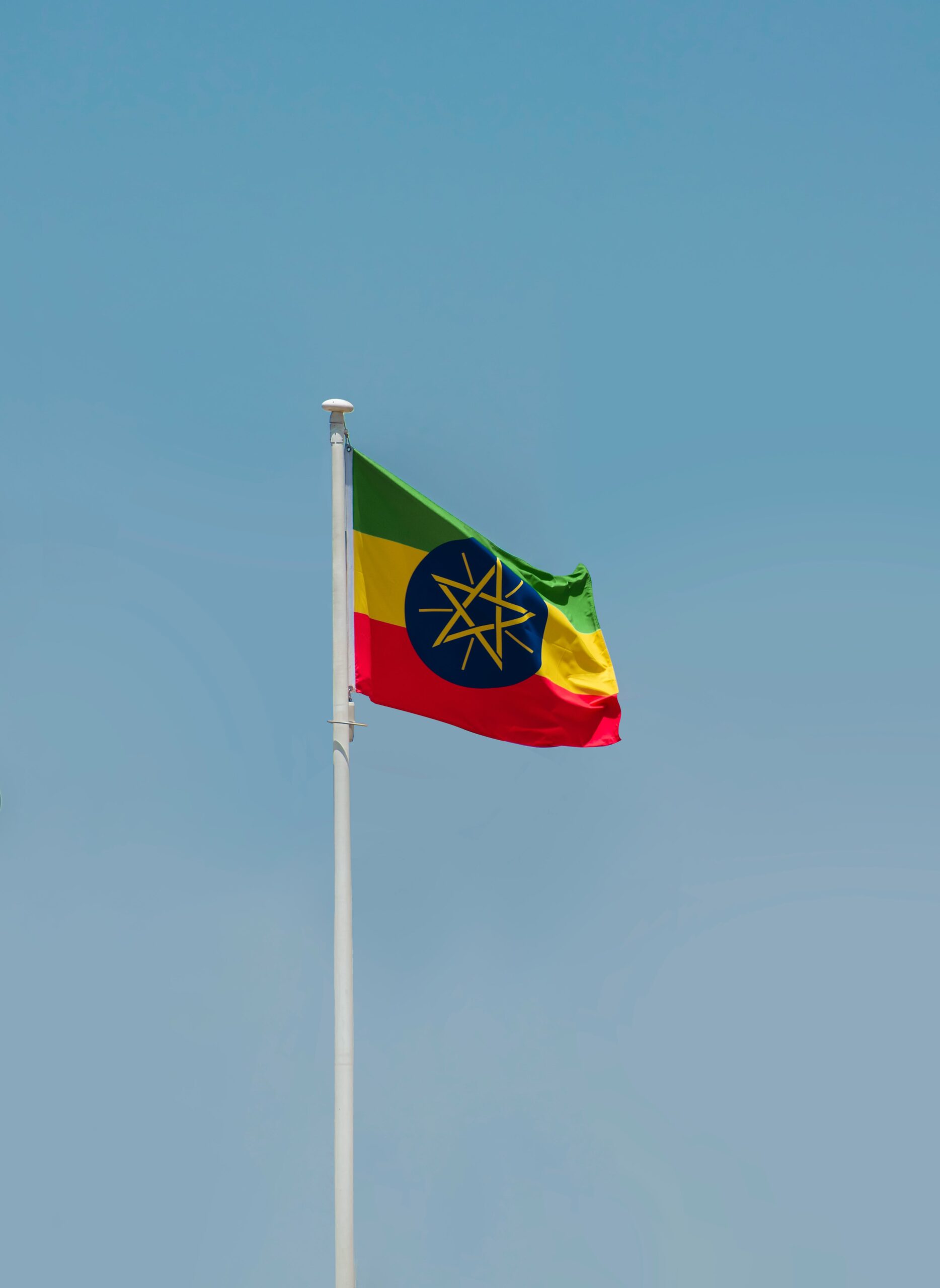What Is The Role Of Traditional Medicine In Ethiopia?
Content:
The significance of traditional medicine in Ethiopian culture
Traditional Medicine in Ethiopia: A Closer Look at its Cultural Significance
Traditional medicine in Ethiopia plays a significant role in the country’s culture and society, serving as a cornerstone of healthcare for many Ethiopians. Rooted in ancient practices and beliefs, traditional medicine is deeply intertwined with the country’s cultural identity, passed down through generations. Ethiopians often rely on traditional healing methods as they are closely connected to their heritage and are perceived as more holistic approaches to well-being.
Historical Perspectives
Throughout history, traditional healing practices have been an integral part of Ethiopian society. These practices date back centuries and have been shaped by various indigenous tribes and communities across the country. Traditional healers, known as dukana in Amharic, have been revered for their wisdom and ability to tap into the healing properties of local herbs, rituals, and spiritual beliefs.
Cultural Beliefs and Practices
Ethiopian traditional medicine is often based on a holistic approach that considers not only physical ailments but also the spiritual and emotional well-being of individuals. Many Ethiopians believe that illnesses are not just physical in nature but can also be caused by spiritual imbalances or negative energies. Traditional healers use a combination of herbal remedies, prayers, and rituals to address these underlying causes and promote healing.
Community Trust and Accessibility
In Ethiopian culture, traditional healers are highly respected figures within their communities. They are seen as wise elders with a deep understanding of the interconnectedness of nature, spirituality, and human health. Many people turn to traditional medicine because it is often more accessible and affordable than modern healthcare facilities, especially in rural areas where Western medicine may be scarce.
Preservation of Cultural Heritage
The practice of traditional medicine in Ethiopia is not just about healing the sick but also about preserving cultural traditions and knowledge. Traditional healers play a crucial role in passing down their techniques and wisdom to the next generation, ensuring that these ancient practices continue to thrive in modern times.
In essence, traditional medicine in Ethiopia is more than just a form of healthcare; it is a reflection of the country’s rich cultural heritage and traditions. By embracing traditional healing practices and recognizing their significance, Ethiopians are able to maintain a strong connection to their roots and promote holistic well-being in their communities.
The Evolution of Traditional Healing Practices in Ethiopia
Traditional medicine in Ethiopia has a rich history that dates back centuries. The evolution of traditional healing practices in the country is a fascinating journey that reflects Ethiopia’s cultural diversity and the deep-rooted beliefs in ancient healing methods. Traditional medicine in Ethiopia encompasses a wide range of practices, including spiritual rituals, the use of medicinal plants, bone-setting techniques, and incantations to invoke healing.
One of the key aspects of traditional healing practices in Ethiopia is the role of traditional healers or "wise ones," who are highly respected members of the community. These traditional healers inherit their knowledge and skills from their ancestors and undergo years of training to become proficient in diagnosing and treating various ailments. The methods used by traditional healers are often passed down orally from generation to generation, preserving the ancient traditions of Ethiopian medicine.
Over the years, traditional healing practices in Ethiopia have evolved to incorporate elements of modern medicine while still retaining their unique cultural identity. Many traditional healers now work in collaboration with Western-trained healthcare professionals to provide holistic care to patients. This integration of traditional and modern approaches to healing has helped bridge the gap between conventional and alternative medicine in Ethiopia.
Despite the advancements in modern medicine, traditional healing practices continue to play a significant role in Ethiopian society. Many Ethiopians still rely on traditional healers for the treatment of various illnesses, especially in rural areas where access to conventional healthcare facilities is limited. Traditional medicine is deeply ingrained in Ethiopian culture and is often viewed as a more accessible and affordable alternative to modern medical treatments.
The evolution of traditional healing practices in Ethiopia highlights the country’s unique approach to healthcare and the importance of preserving ancient healing traditions. Traditional medicine continues to be a valuable resource for many Ethiopians, offering a holistic perspective on health and well-being that complements modern medical practices. Through collaboration and mutual respect between traditional healers and modern healthcare providers, Ethiopia is paving the way for a healthcare system that honors its cultural heritage while embracing advancements in science and technology.
Comparing Traditional Medicine with Modern Medicine in Ethiopia: A Detailed Analysis
Traditional medicine in Ethiopia has a rich history embedded in the cultural heritage of the country. The use of traditional healing practices dates back centuries and continues to play a significant role in the lives of many Ethiopians. Traditional healers, often referred to as "dawas" or "qessoch," hold esteemed positions within their communities, providing remedies for a wide range of ailments using natural ingredients and ancient techniques passed down through generations.
On the other hand, modern medicine in Ethiopia has seen considerable advancements in recent years, with the government investing heavily in improving healthcare infrastructure and promoting Western medical practices. Hospitals, clinics, and specialized medical professionals have become more accessible, particularly in urban centers, offering services ranging from primary care to specialized treatments and surgeries.
When comparing traditional medicine with modern medicine in Ethiopia, several key differences and similarities emerge. Traditional medicine relies heavily on herbal remedies, rituals, and spiritual practices to address health issues, focusing on holistic healing that considers the interconnectedness of body, mind, and spirit. In contrast, modern medicine emphasizes evidence-based practices, pharmaceutical interventions, and scientific approaches to diagnosis and treatment.
One of the main benefits of traditional medicine is its deep-rooted connection to Ethiopian culture and identity. Many Ethiopians trust and prefer the familiar practices of traditional healers, especially in rural areas where access to modern healthcare may be limited. Traditional medicine also offers a more personalized approach to healing, with healers often taking into account the patient’s social, emotional, and spiritual well-being.
However, traditional medicine in Ethiopia also faces challenges, including lack of standardization, limited scientific validation of treatments, and potential risks associated with certain herbal remedies. In comparison, modern medicine adheres to strict regulatory standards, undergoes rigorous testing, and follows evidence-based guidelines to ensure safety and efficacy.
Despite these differences, there is a growing recognition of the complementary nature of traditional and modern medicine in Ethiopia. Efforts are underway to integrate traditional medicine into the country’s healthcare system, with initiatives to collaborate with traditional healers, conduct research on traditional remedies, and incorporate aspects of traditional healing into modern practices.
The comparison between traditional medicine and modern medicine in Ethiopia highlights the importance of respecting and harnessing the strengths of both systems to improve overall healthcare outcomes for the Ethiopian population. By promoting collaboration, research, and integration, Ethiopia can leverage the unique benefits of traditional medicine while advancing the quality and accessibility of modern healthcare services across the country.
Preservation and Challenges Faced by Traditional Healers in Ethiopia
Traditional healers in Ethiopia play a significant role in providing healthcare services to a large portion of the population, especially in rural areas where access to modern healthcare facilities is limited. These healers, also known as "dawi" or "qiné," have been practicing for generations, passing down their knowledge and skills from one generation to the next. The traditional medicine practiced by these healers is deeply rooted in Ethiopian culture and has been a cornerstone of the country’s healthcare system for centuries.
One of the main challenges faced by traditional healers in Ethiopia is the preservation of their knowledge and practices. With modernization and the influence of Western medicine, there is a risk of traditional healing practices fading away. Many young Ethiopians are now opting to pursue careers in modern medicine rather than following in the footsteps of their ancestors. This shift poses a threat to the preservation of traditional healing practices that have been passed down through oral traditions for centuries.
Another significant challenge faced by traditional healers in Ethiopia is the lack of recognition and support from the government and mainstream healthcare systems. Despite the vital role they play in providing healthcare services to a large portion of the population, traditional healers often operate in the shadows, with their practices marginalized and sometimes even stigmatized. This lack of recognition not only hinders the preservation of traditional healing practices but also limits the access of many Ethiopians to affordable and culturally relevant healthcare services.
Moreover, traditional healers in Ethiopia face challenges related to regulation and standardization of their practices. Unlike modern healthcare practitioners who undergo rigorous training and certification processes, traditional healers often lack formal recognition and regulation. This lack of standardization can lead to inconsistencies in the quality of care provided by traditional healers, raising concerns about the safety and efficacy of their treatments.
Despite these challenges, efforts are being made to preserve traditional healing practices in Ethiopia. Organizations and researchers are working to document and study traditional healing methods to ensure their preservation for future generations. Additionally, there is a growing recognition of the importance of integrating traditional medicine into the country’s healthcare system to provide more comprehensive and culturally sensitive care to all Ethiopians.
The preservation of traditional healing practices in Ethiopia faces various challenges, including the risk of knowledge loss, lack of recognition and support, and issues related to regulation and standardization. However, with continued efforts to document, study, and integrate traditional medicine into the healthcare system, there is hope that these valuable practices will endure and continue to benefit the health and well-being of the Ethiopian people for years to come.
The Role of Traditional Medicine in Ethiopia’s Healthcare System
Traditional medicine plays a vital role in Ethiopia’s healthcare system, serving as an integral part of the country’s medical practices. With a long history deeply rooted in Ethiopian culture, traditional medicine continues to be widely utilized by a significant portion of the population alongside modern medical practices. The integration of traditional medicine into Ethiopia’s healthcare system reflects the cultural beliefs and practices of the Ethiopian people, providing a holistic approach to health and wellness.
In Ethiopia, traditional medicine is practiced by skilled healers who have inherited their knowledge and expertise through generations, often within their own families or communities. These traditional healers use a combination of plant-based remedies, spiritual rituals, and massage techniques to diagnose and treat various ailments. The holistic nature of traditional medicine emphasizes the interconnectedness of the mind, body, and spirit, aiming to restore balance and harmony for overall well-being.
One of the key strengths of traditional medicine in Ethiopia is its accessibility, particularly in rural areas where modern medical facilities may be limited or unavailable. Traditional healers serve as primary healthcare providers for many Ethiopians, offering affordable and culturally sensitive care to those in need. This accessibility is crucial in addressing the healthcare needs of vulnerable populations and marginalized communities who may face barriers to accessing modern medical services.
The integration of traditional medicine into Ethiopia’s healthcare system presents both opportunities and challenges. While traditional medicine offers unique insights and practices that complement modern healthcare services, there are also concerns regarding standardization, regulation, and safety. Efforts are underway to preserve and formalize traditional healing practices, ensuring that they meet quality and safety standards while maintaining their cultural authenticity.
Despite these challenges, the role of traditional medicine in Ethiopia’s healthcare system continues to evolve, with increasing recognition of its value in providing holistic care to the population. By acknowledging and integrating traditional healing practices into mainstream healthcare services, Ethiopia is working towards a more inclusive and comprehensive healthcare system that reflects the diverse needs and beliefs of its people.
Conclusion
Throughout history, traditional medicine has played a significant role in Ethiopian culture, providing healing practices that are deeply rooted in the country’s heritage. The evolution of traditional healing practices in Ethiopia showcases the resilience and adaptability of these age-old remedies to meet the changing needs of society. While modern medicine has made significant advancements, traditional medicine continues to hold its ground in the Ethiopian healthcare landscape.
Traditional medicine in Ethiopia is often more accessible, affordable, and aligned with the cultural beliefs of the people, making it a popular choice for many. However, the comparison between traditional medicine and modern medicine in Ethiopia reveals a need for collaboration and integration to leverage the strengths of both systems for the benefit of the population. Modern medicine brings scientific rigor and advanced technologies, while traditional medicine offers holistic approaches and a deep understanding of local healing practices.
Traditional healers in Ethiopia play a vital role in preserving ancient knowledge and practices that have been passed down through generations. However, they also face challenges such as lack of formal recognition, limited resources, and regulatory hurdles that threaten the sustainability of their traditional healing methods. Despite these obstacles, traditional healers continue to serve their communities with compassion and dedication, upholding the cultural heritage of Ethiopia.
As Ethiopia strives to improve its healthcare system and make services more accessible to all its citizens, there is a growing recognition of the value of integrating traditional medicine into the mainstream healthcare system. By incorporating traditional healing practices and working closely with traditional healers, the country can bridge the gap between modern medicine and traditional medicine, offering a more comprehensive and culturally sensitive approach to healthcare.
The integration of traditional medicine into Ethiopia’s healthcare system presents an opportunity to harness the unique strengths of both systems, providing a more holistic and inclusive approach to healthcare delivery. By promoting collaboration, mutual respect, and knowledge-sharing between traditional healers and modern healthcare providers, Ethiopia can build a more robust and resilient healthcare system that meets the diverse needs of its population.
The role of traditional medicine in Ethiopia is multifaceted and deeply intertwined with the country’s cultural heritage and healthcare landscape. By recognizing the significance of traditional healing practices, addressing the challenges faced by traditional healers, and integrating traditional medicine into the mainstream healthcare system, Ethiopia can create a healthcare ecosystem that is both modern and rooted in tradition, ultimately improving the health and well-being of its people.







